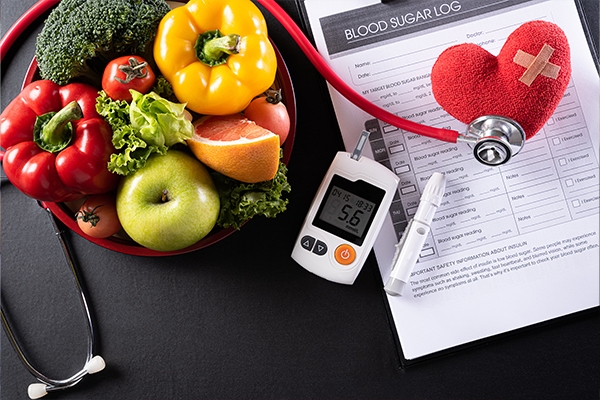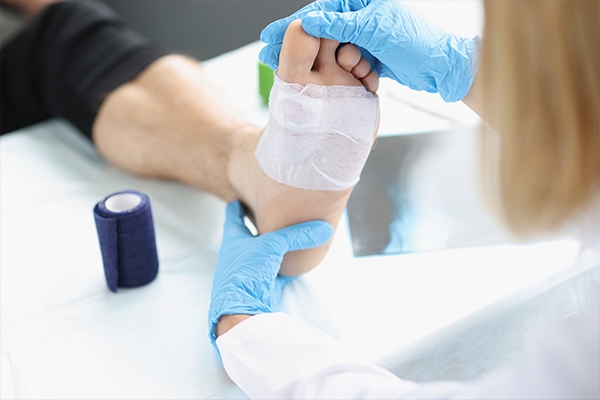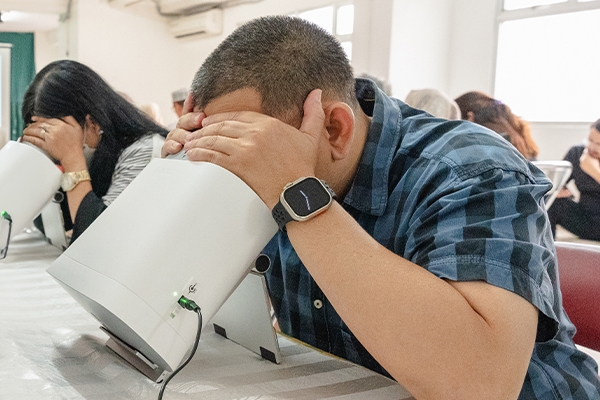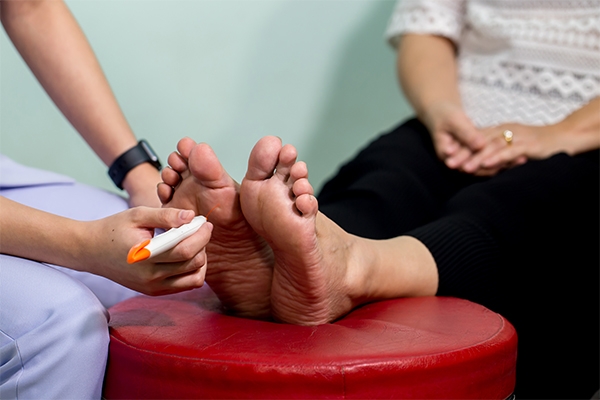Diabetes Complications

Diabetes, if not effectively managed, can cause your blood sugar levels to become too high or too low. This can lead to kidney disease, nerve damage, and conditions that affect the skin, eyes, and feet.
Having diabetes is a lifelong condition that requires ongoing care. Without proper treatment, it can lead to several complications.
Diabetes complications are additional health issues that arise after being diagnosed with type 1 or type 2 diabetes mellitus. The severity varies. While some complications are manageable and do not disrupt daily activities, others can significantly impact your quality of life.
Monitoring your blood sugar levels regularly is crucial to preventing complications. However, no matter how careful you are, problems can still arise.
Diabetes care is not a sprint; it is a marathon. So, pace yourself and take small moves every day.
Let's discuss further. What are the most common complications of diabetes? Here are the seven most common ones.
1. Diabetic foot ulcers

Foot problems are among the most common diabetic complications. Diabetes can cause foot ulcers, which are open sores or wounds on the soles of the feet that damage the nerves and blood vessels. Over time, nerve loss can reduce your ability to sense pain—especially in the feet, where friction is more common due to weight and footwear.
Diabetes also slows the healing process, especially when blood sugar levels are not under control. Over time, these sores may become infected and worsen, sometimes leading to serious complications like amputation.
However, you can help prevent diabetic foot ulcers by daily checking your feet.
2. Diabetic retinopathy and glaucoma

Diabetes might have an impact on your eye health. This condition is known as diabetic retinopathy. One-third of diabetics will develop some form of vision loss in their lifetime. This issue arises from damage to the blood vessels in the back of the eye (the retina).
Blood vessels can be damaged if blood sugar, or glucose, levels are too high for a long time. Most people don't notice any symptoms at first. As it progresses, there may be changes in vision, such as sudden loss of vision, blurred vision, the appearance of floating objects or black spots in the vision, eye pain, or redness.
Additionally, diabetes can lead to glaucoma. This occurs when pressure in the eyeball increases, restricting blood flow to the retina and optic nerve. Glaucoma causes gradual vision loss and people with diabetes are twice as likely to develop it compared to those without diabetes.
To maintain eye health, visit an eye doctor regularly and manage blood sugar with medication, diet, and exercise.
3. Nerve damage or diabetic neuropathy

Another common complication of diabetes is nerve damage or diabetic neuropathy. Again, high blood sugar is the cause. Over time, the high blood sugar levels can eventually damage your nerves.
Diabetic neuropathy often affects the legs and feet, leading to numbness or pain. Numbness can make it difficult for people with diabetes to feel pain, increasing the risk of foot ulcers.
However, nerve damage is not limited to the feet. It can also be other parts of the body, including the digestive system, heart, blood vessels, and urinary tract, causing a wide range of symptoms.
4. Oral health

Diabetes can also affect oral health. High blood sugar weakens white blood cells, making the mouth more susceptible to infections.
The most common oral health problems associated with diabetes include dry mouth, gum disease, and canker sores. Therefore, it is critical to maintain good oral health by brushing, flossing, and visiting the dentist regularly.
5. Kidney disease

Kidney disease (diabetic nephropathy) is caused by damage to the kidneys' small blood vessels, causing them to function inefficiently or even kidney failure. This disease is more prevalent among people with diabetes. Maintaining normal blood glucose and blood pressure levels can reduce the risk of kidney disease.
In people with diabetes, high glucose levels can damage the blood vessels in the kidneys, making them work harder to filter blood. This impairs the kidneys' ability to filter waste and excess fluid, which can lead to chronic kidney disease and kidney failure. High blood pressure further strains the kidneys, increasing the risk of kidney disease.
6. Cardiovascular disease

Diabetes can affect the heart by damaging nerves and blood vessels if blood sugar levels are too high for a long time. People with diabetes are two to four times more likely to develop cardiovascular disease than others.
Because of this high risk, cardiovascular disease is the most common cause of death in people with diabetes. Risk factors, including high blood pressure, high cholesterol and glucose, and obesity, increase the risk of cardiovascular complications.
Recognizing and managing these risk factors is critical to prevent or delay the onset of cardiovascular disease.
**
Controlling blood sugar levels is crucial for people with diabetes to live a healthy life and minimize the risk of complications.
For early detection of diabetes, you can visit the GWS Medika Clinic, a health clinic in Jakarta. The medical team will check your blood pressure, LDL cholesterol, and triglyceride levels, and perform q basic EKG as part of a comprehensive health evaluation.
In addition, you can benefit from AI-based health checks. This AI Fundus technology can detect the risk of nine chronic diseases through photos of the eye's retina. This technology works by linking blood vessels in the retina with heart and brain health conditions, providing predictions with an accuracy of up to 98%.
This AI Fundus technology can evaluate various health risks, including:
- Risk of arteriosclerosis
- Early detection of glucose metabolism disorders
- Assessment of anemia risk
- Cardiovascular risk assessment
- Cognitive disorder risk examination
- Brain tumor risk detection
- Macular vision impairment risk analysis
- Evaluating the risk of inhaled particles
- Diabetic retinopathy analysis
Visit the GWS Medika Clinic, the nearest health clinic in Jakarta. Control blood sugar levels, prevent risks, and enjoy a healthier life!



